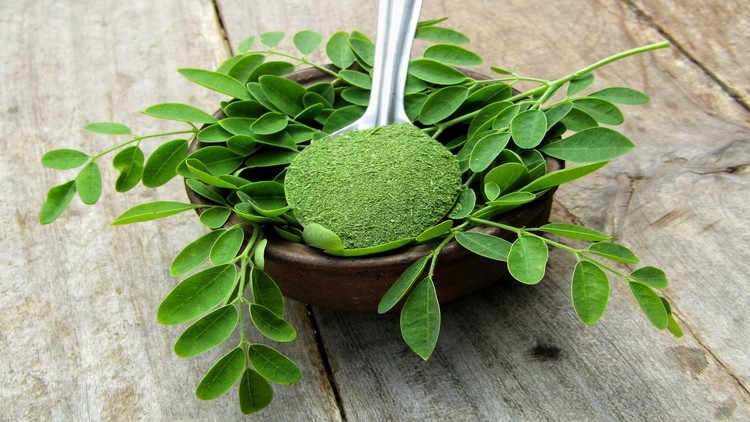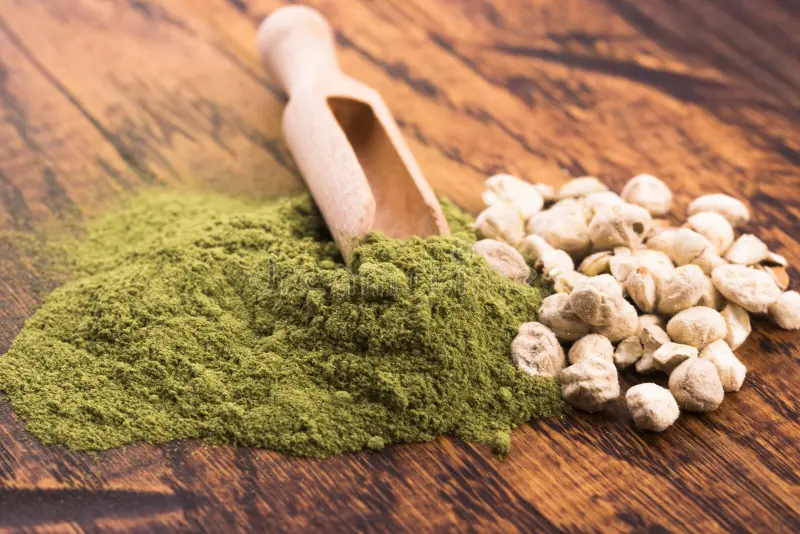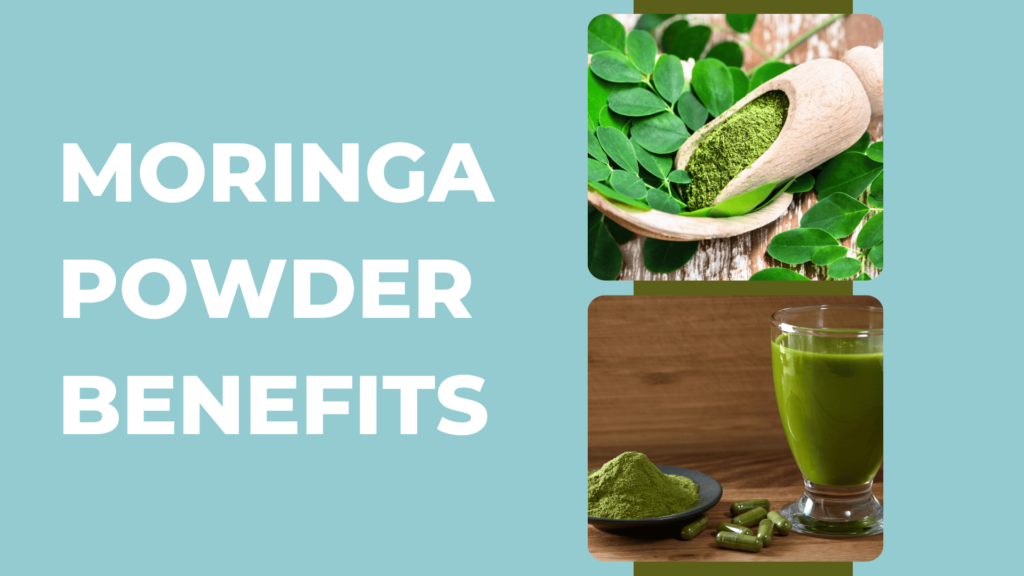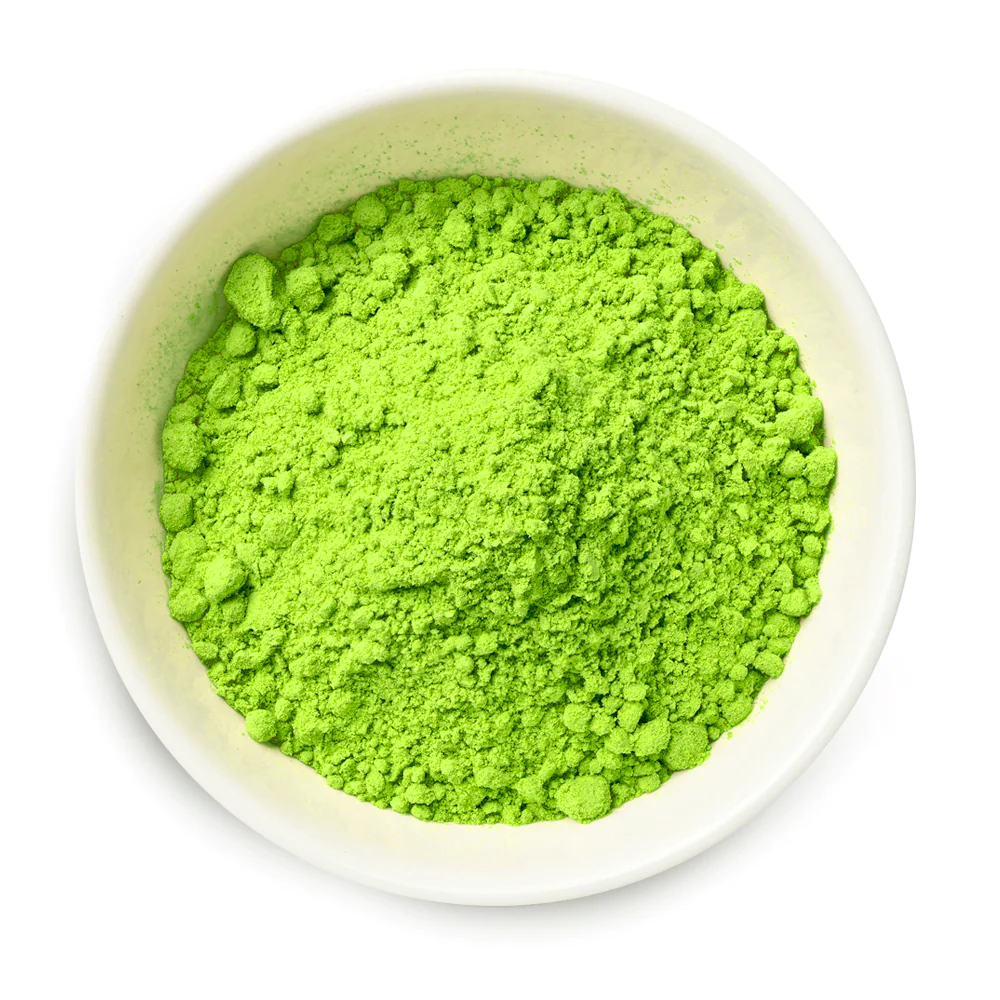Introduction
Moringa powder, hailed as the ultimate green health kick, is more than just a supplement—it’s a powerhouse of nutrients. Delve into this comprehensive guide to uncover the myriad benefits and insights that make Moringa powder a superfood worth incorporating into your daily routine.
Table of Contents
What is Moringa Powder?
Moringa powder is derived from the leaves of the Moringa oleifera tree, native to India and widely cultivated in tropical and subtropical regions. Known for its nutrient density, this green powder is packed with vitamins, minerals, and antioxidants.
Why Choose Moringa Powder?
Choosing moringa powder as a dietary supplement offers a range of health benefits due to its highly nutritious profile and potent anti-inflammatory, antioxidant, and tissue-protective properties. Here’s why incorporating moringa powder into your diet might be beneficial:
- Nutrient-Rich: Moringa leaves are an excellent source of vitamins and minerals. The powder made from these leaves is rich in vitamins A, C, and E, calcium, potassium, and protein, making it a powerful supplement to boost nutritional intake.
- Antioxidant Properties: Moringa powder contains antioxidants such as quercetin and chlorogenic acid. Antioxidants help fight oxidative stress and may reduce the risk of chronic diseases, such as heart disease and type 2 diabetes.
- Anti-Inflammatory Effects: The isothiocyanates in moringa are known for their anti-inflammatory properties. Chronic inflammation is linked to numerous health issues, including heart disease, cancer, and Alzheimer’s disease, so reducing inflammation can have protective effects.
- Lowers Blood Sugar Levels: Several studies have shown that moringa powder can help reduce blood sugar levels, which is beneficial for managing diabetes and reducing the risk of diabetes for those with pre-diabetes or metabolic syndrome.
- Lowers Cholesterol: Moringa has been found to have cholesterol-lowering effects, which can help prevent the risk of heart disease.
- Supports Brain Health: Its high content of antioxidants and neuro-enhancer activities might also support brain health and cognitive function, including memory. It has been studied for its potential in managing Alzheimer’s disease and other neurodegenerative disorders.
- Protects the Liver: Moringa powder can reduce liver damage and fibrosis and improve liver function due to its high concentrations of polyphenols.
- Improves Digestive Health: The fiber content in moringa powder can help with digestive problems, acting as a natural laxative and improving gut health.
- Supports Wound Healing: Moringa has blood-clotting properties in its leaves, roots, and seeds that can benefit wound healing and reduce clotting time, which means it helps reduce the time it takes for scratches, cuts, or wounds to stop bleeding.
- Versatile Use: Moringa powder can easily be added to smoothies, teas, and dishes for an extra nutrient boost without significantly altering the taste of foods.

The Incredible Health Benefits
Moringa powder, derived from the leaves of the Moringa oleifera plant, is celebrated for its exceptional range of health benefits. This “miracle tree” is not just a source of nutritional supplements; it’s a powerhouse of bioactive plant compounds and nutrients that can significantly contribute to overall health and wellness. Here’s an overview of the incredible health benefits associated with moringa powder:
1. Rich Nutritional Profile
Moringa powder is densely packed with vitamins, minerals, and amino acids. It contains vitamin A, C, and E, calcium, potassium, and many essential proteins. This makes it an excellent supplement for combating malnutrition and enhancing dietary nutrient intake.
2. Potent Antioxidant Activity
The powder is rich in antioxidants such as quercetin, chlorogenic acid, and beta-carotene. These compounds help in neutralizing harmful free radicals in the body, reducing oxidative stress, and potentially lowering the risk of chronic diseases including diabetes and heart disease.
3. Anti-inflammatory Properties
Inflammation is a natural response to injury or infection, but chronic inflammation can lead to several disorders. Moringa contains isothiocyanates, which are known for their anti-inflammatory effects, helping to reduce inflammation and the risk of developing related conditions.
4. Blood Sugar Regulation
Regular intake of moringa powder has been shown to help lower blood sugar levels, which is crucial for the prevention and control of diabetes. Its effect on reducing lipid and glucose levels makes it beneficial for diabetic patients.
5. Cholesterol Management
Moringa powder can also positively affect cholesterol levels, thereby reducing the risk of heart disease. Its hypocholesterolemic effects support cardiovascular health by preventing the buildup of plaque in the arteries.
6. Supports Brain Health
The high antioxidant content promotes brain health and cognitive function. Moringa’s neuroenhancer activities and its ability to regulate neurotransmitter functions make it beneficial for improving mental health and protecting against neurodegenerative diseases.
7. Liver Protection
Moringa powder is known for its hepatoprotective properties, protecting the liver against damage, oxidation, and fibrosis. This is particularly beneficial for those with liver diseases or those exposed to liver-toxic substances.
8. Digestive Health
The fiber content in moringa supports the digestive system, aiding in digestion and preventing constipation. It can also help in treating stomach complaints and improving gut health.
9. Enhances Wound Healing
Moringa has blood-clotting properties in its leaves, roots, and seeds that can help in quicker wound healing. It reduces clotting time, thereby minimizing the risk of infections and speeding up the healing process.
10. Immune System Boost
The high vitamin C content along with other essential nutrients in moringa powder strengthens the immune system, helping the body to ward off various infections and diseases.
11. Supports Weight Loss
Moringa can enhance fat metabolism, making it beneficial for weight management. Its nutrient-rich, low-calorie profile supports healthy weight loss when incorporated into a balanced diet.
Incorporating moringa powder into your diet can be a straightforward way to boost your health due to its versatile nature. It can be added to smoothies, soups, and salads or even brewed as a tea. However, it’s important to consult with a healthcare provider before starting any new supplement, especially for individuals with existing health conditions or those taking medication, to ensure safety and appropriateness.
How to Incorporate Moringa Powder
Incorporating mororinga powder into your diet is a fantastic way to take advantage of its myriad health benefits. Moringa powder has a mild, earthy flavor that can easily blend into many dishes and beverages without overpowering them. Here are several creative and simple ways to include moringa powder in your daily routine:
1. Smoothies and Juices
Adding a teaspoon of moringa powder to your morning smoothie or juice is an easy way to get your daily dose of vitamins and minerals. Its subtle flavor can be masked by the other ingredients, making it a nutritious addition to any recipe.
2. Teas and Infusions
Moringa powder can be whisked into hot water to make a healthful tea. You can also add lemon, honey, or ginger to enhance its flavor. This can be a calming, nutritious beverage to start the day or to relax in the evening.
3. Soups and Stews
Sprinkle moringa powder into soups, stews, and broths. It adds nutrients without significantly changing the taste or texture of your meal. Start with a small amount and gradually increase it to suit your taste preferences.
4. Baked Goods
Incorporate moringa powder into your baking recipes. It can be added to bread, muffins, pancakes, and cakes. Moringa not only boosts the nutritional content but also gives your baked goods a vibrant green hue.
5. Salad Dressings
Mix moringa powder into your salad dressings. Whether it’s a vinaigrette or a creamy dressing, moringa can add a nutritional punch. Blend it with olive oil, vinegar, mustard, and your choice of herbs for a tasty and healthy dressing.
6. Sprinkled Over Meals
Simply sprinkle moringa powder over your dishes, just as you would with any seasoning. It goes well with grains, rice, salads, and vegetables, adding a nutrient boost with minimal effort.
7. Energy Bars and Balls
For a quick and nutritious snack, mix moringa powder into homemade energy bars or balls. Combine it with nuts, seeds, oats, and a sweetener like honey or maple syrup. This makes for a perfect pre- or post-workout snack or a midday energy boost.
8. Yogurt and Oatmeal
Stir moringa powder into your morning yogurt or oatmeal. It blends well and adds a healthful kick to your breakfast, starting your day on a nutritious note.
9. Homemade Sauces and Pestos
Moringa powder can be added to homemade sauces and pestos. Blend it with basil, garlic, nuts, and olive oil for a nutritious pesto, or incorporate it into tomato sauces for pasta and pizzas.
10. In Beverages like Lattes
Create a moringa latte by mixing moringa powder with warm milk or a dairy-free alternative. Sweeten with honey or maple syrup for a comforting and healthful drink.
When incorporating moringa powder into your diet, start with small amounts to see how your body reacts. Gradually increase the quantity based on your taste preferences and dietary needs. As with any supplement, it’s a good idea to consult with a healthcare provider before starting, especially if you have underlying health conditions or are pregnant or breastfeeding.

Moringa Powder: A Sustainable Choice
Moringa powder is not only renowned for its nutritional and health benefits but also for its sustainability and positive environmental impact. The Moringa oleifera tree, from which the powder is derived, is highly resilient and adaptable, making it an excellent crop for sustainable agriculture practices. Here’s why moringa powder is considered a sustainable choice:
1. Low Water Requirement
Moringa trees require significantly less water compared to other crops, making them ideal for cultivation in arid and semi-arid regions. This low water requirement helps conserve water resources and ensures that the plant can thrive even in conditions of drought.
2. Rapid Growth
The Moringa oleifera tree grows quickly, reaching maturity within a short period. This rapid growth allows for more frequent harvesting of leaves, which can be dried and ground into powder. This efficiency in growth and production means that moringa can provide a continuous source of nutrition and economic benefit with minimal environmental impact.
3. Improves Soil Health
Moringa has a positive effect on soil health. Its deep root system can help prevent soil erosion and improve soil quality. Additionally, the leaves of the moringa tree, when used as green manure, can enrich the soil with essential nutrients, promoting the growth of other plants and contributing to a healthier ecosystem.
4. Carbon Sequestration
Like other trees, moringa trees absorb carbon dioxide from the atmosphere during photosynthesis, which helps mitigate climate change. The cultivation of moringa trees contributes to carbon sequestration, reducing the overall carbon footprint.
5. Versatility and Low Waste
Every part of the moringa tree is usable – from the leaves and seeds to the roots and bark, making it an example of a zero-waste crop. While the leaves are turned into powder, the seeds can be used for oil extraction, and the remaining seed cake as a fertilizer or water purifier. This versatility ensures minimal waste and maximizes the utility of the plant.
6. Supports Biodiversity
Moringa trees can be integrated into agroforestry systems, which support biodiversity. These systems can host a variety of plant and animal species, contributing to the conservation of biodiversity and the stability of ecosystems.
7. Economic Empowerment
The cultivation of moringa can contribute to the economic empowerment of communities in developing countries. It offers a source of income through the sale of moringa products while requiring minimal investment in terms of resources and technology. This can lead to sustainable development and poverty reduction in rural areas.
8. Health and Nutrition
Promoting the use of moringa powder contributes to improved health and nutrition, especially in regions where access to a variety of foods is limited. This aligns with sustainable development goals by addressing malnutrition and health disparities.
Choosing moringa powder is a step towards supporting sustainable agriculture practices, environmental conservation, and socio-economic development. Its cultivation and use as a dietary supplement represent a confluence of health, environmental, and social benefits, making moringa powder a truly sustainable choice.

Moringa Powder vs. Other Supplements
Moringa powder is often compared to other dietary supplements due to its rich nutrient profile and health benefits. When assessing moringa powder against other popular supplements, it’s important to consider nutritional content, health benefits, versatility, and potential side effects. Here’s how moringa powder stacks up against some common supplements:
Moringa Powder vs. Spirulina
- Nutritional Content: Both moringa and spirulina are nutrient-dense. While moringa is rich in vitamins A, C, and E, calcium, potassium, and proteins, spirulina is a type of blue-green algae that boasts high levels of protein, B vitamins, iron, and copper.
- Health Benefits: Moringa and spirulina share similar health benefits, including antioxidant and anti-inflammatory properties. Spirulina, however, has been noted for its ability to detoxify heavy metals, especially arsenic.
- Versatility: Moringa tends to have a milder taste compared to the strong, sometimes unpleasant taste of spirulina, making moringa more versatile in terms of culinary uses.
Moringa Powder vs. Whey Protein
- Nutritional Content: Moringa powder contains a good amount of plant-based protein, but whey protein is a complete protein source with all nine essential amino acids, making it popular among athletes for muscle growth and recovery.
- Health Benefits: While whey protein focuses on muscle synthesis and recovery, moringa offers a broader range of health benefits due to its vitamins, minerals, and antioxidants.
- Versatility: Moringa powder is more versatile in terms of nutritional benefits and can be added to a wider range of foods without altering taste significantly.
Moringa Powder vs. Turmeric
- Nutritional Content: Turmeric is known for its active compound, curcumin, which provides its health benefits. Moringa offers a wider range of nutrients, including essential vitamins and minerals.
- Health Benefits: Both supplements have strong anti-inflammatory and antioxidant effects. Turmeric is particularly known for its joint health benefits and ability to improve cognitive function, while moringa provides more comprehensive nutritional benefits.
- Versatility: Moringa powder is more nutritionally diverse and can be used in various dishes. Turmeric is often used for its specific flavor and color in culinary applications.
Moringa Powder vs. Matcha
- Nutritional Content: Matcha is a type of green tea that is rich in antioxidants, particularly catechins. Moringa powder offers a wider array of vitamins and minerals.
- Health Benefits: Both are praised for their antioxidant properties. Matcha also provides a unique amino acid, L-theanine, which can promote relaxation and mental clarity without the drowsiness.
- Versatility: While both can be used in beverages and cooking, moringa has a more neutral flavor, making it easier to incorporate into a variety of dishes.
Considerations
- Side Effects: Moringa powder is generally safe for most people when consumed in moderate amounts, but it’s important to consider potential interactions with medications or underlying health conditions. Other supplements may also have side effects or specific interactions to be aware of.
- Dietary Preferences: Moringa powder is plant-based, making it suitable for vegetarians and vegans, whereas whey protein is derived from milk.
- Purpose of Use: The choice between moringa powder and other supplements might depend on specific health goals, such as improving nutritional intake, muscle recovery, or managing inflammation.

Source to Get Organic Moringa Leaf Powder Capsules
FAQs
Is Moringa Powder Safe for Everyone?
Moringa powder is generally safe for consumption. However, pregnant or nursing individuals and those on specific medications should consult a healthcare professional before use.
How Much Moringa Powder Should I Consume Daily?
The recommended daily intake of Moringa powder varies but typically ranges from 1 to 3 teaspoons. Start with a smaller amount and gradually increase to gauge tolerance.
Can Moringa Powder Help with Weight Loss?
While Moringa powder is nutrient-dense and supports overall health, it’s not a direct weight-loss solution. It can complement a balanced diet and exercise regimen.
Does Moringa Powder Expire?
Like any other natural product, Moringa powder has a shelf life. Proper storage in a cool, dry place can extend its freshness for up to a year.
Are There Any Side Effects of Moringa Powder?
When consumed in moderation, Moringa powder is safe for most individuals. However, excessive intake may cause digestive issues. Moderation is key.
Where Can I Purchase Quality Moringa Powder?
Look for reputable sellers or certified organic brands to ensure you’re getting high-quality Moringa powder. Online health stores or local health food shops often carry authentic products.
Conclusion
In conclusion, The Ultimate Green Health Kick: Moringa Powder offers a natural and potent way to enhance overall wellness. Its exceptional nutritional content, diverse applications, and sustainable cultivation make it a standout superfood in today’s health-conscious world.
